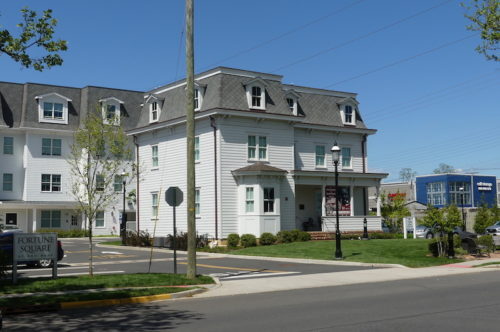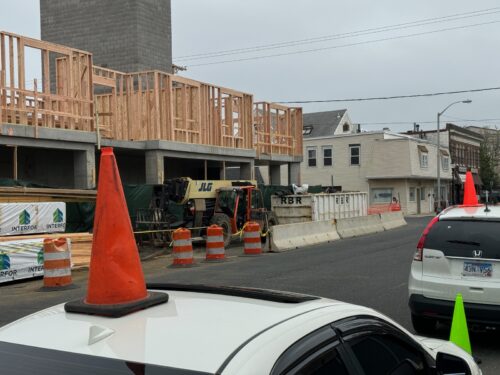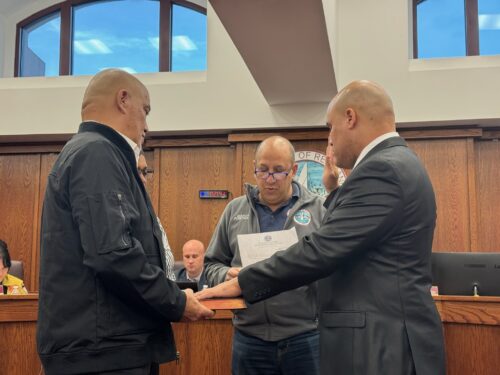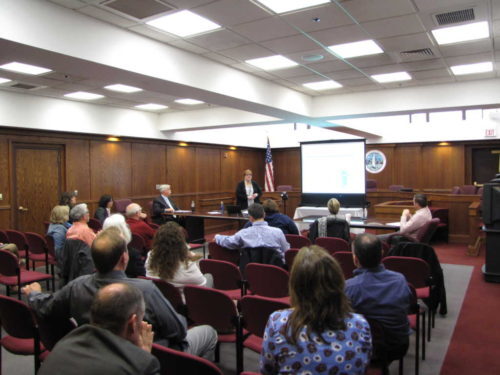
[Update, May 20: Visuals from this presentation are now available online here.]
By JOHN T. WARD

At the annual informal budget presentation, held at borough hall, Councilwoman Linda Schwabenbauer said the spending plan scheduled for adoption next week calls for a two-percent tax increase, or about $35 for the year for the owner of a home assessed at the town-average $354,006.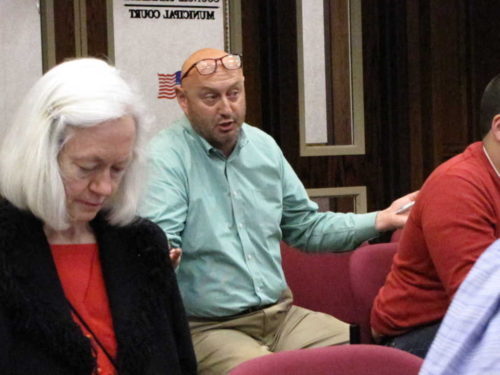
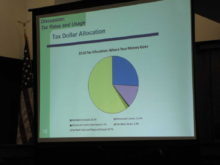
The reduction, she told a an audience of about six residents and twice as many borough officials, was achieved in part through the parking fee increase. That’s expected to generate $254,000 in additional revenue in the next six months alone, Schwabenbauer said.
Cost savings came from a continued payroll attrition program — though some staff was added to the library to restore jobs necessitated by a re-expansion of the facilities hours of operation; through vehicle sales; improved water billing; “and of course the parking meters,” Schwabenbauer said.
The budget walk-through prompted discussion on a wide range of topics, ranging from the mechanics of Monmouth County’s Assessment Demonstration Program, which came under fire last year but appears to be back in favor with borough officials, to overcrowding of rental homes and its impact on schools.
Tom Wieczerzak of Oakland Street told officials they “need to be a little more aggressive” in negotiating payment-in-lieu-of-tax (PILOT) agreements with nonprofits. After borough Administrator Stanley Sickels said the deals are voluntary and cannot be compelled, Wieczerzak responded, “is it illegal to ask for more?”
Tom Labetti of Elm Place, who was the sole attendee at last year’s presentation, came armed with his laptop computer, handfuls of printed data and lots of questions.
Labetti said he “geeked out” one night this week and manually entered data to create graphs showing spending over the past five years, something he urged borough officials to do. His charts can be seen here.
“We in the public want to be better informed,” he told Schwabenbauer. “It helps you. It really does.”


